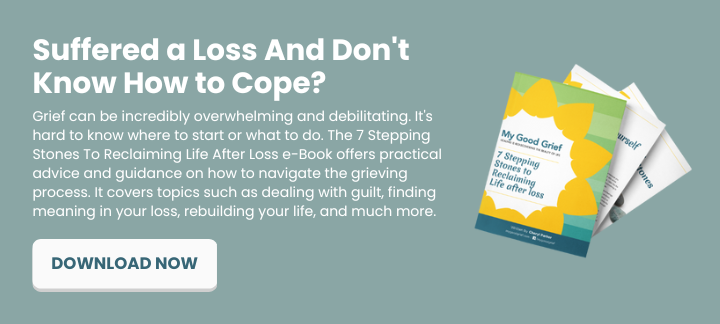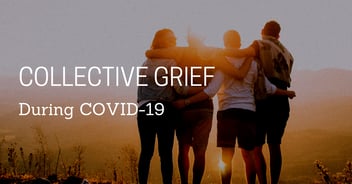A Child’s First Loss
A child’s first loss is usually something they will remember for the rest of their life. Every adult I have worked with, can recount their first loss vividly and the circumstances that were associated with that loss, the conversations that took place, the mood and behaviors of those involved and who was there to support them through it. A child’s first loss sets the tone for all losses to come in their lifetime.
Children will mirror their influencing adults around them, during these times of sorrow. Quite often it is a pet or a grandparent dying that is their first loss, but other losses can be associated with divorce, moving, childhood sexual abuse where they lost their innocence or trust in their protectors, or other childhood trauma. How you respond verbally, and otherwise, will set in motion how your children respond to loss.
Misconceptions
• Children adapt and don’t need to know the truth
• Children don’t understand and
don’t need to know the truth
• Children need to be protected
from the truth
• Children don’t grieve
• Children should not attend funerals
• As soon as you are old enough to love, which is, as soon as you are born, you are old enough to grieve. Have you heard of children who are not held at birth and die? They grieve the abandonment.
And yes, children will adapt, but make no mistake, without the truth, guidance and opportunity to grieve in a healthy way, they will learn coping strategies to manage themselves through the grief, in one way, or the other.
Our non-verbal behavior teaches children just as much, if not more, than our verbal communication. We may sense that we are protecting them from something but, I believe, the only thing we are protecting them from, is being real, and learning how to cope and respond appropriately and lovingly, to a real situation.
We think children don’t understand and of course they don’t understand at the same level as adults, but they definitely understand at the developmental level they are at. If we don’t allow them to grieve, then we lose an amazing opportunity to learn from them. Their minds will process what they know and understand. Children are quite literal and simple in their thinking, unlike adults, who have had years of conditioning to complicate matters and include our own historical stories to what is really going on, with regards to the loss. Adults could learn so much from allowing our children to grieve naturally.
Adults, in an attempt to soften the conversation or to protect the children from the truth can do more damage than good. Telling a child that God took Gramma away or that Grampa has gone to sleep can give children the wrong perceptions. They can grow up being afraid of God because he takes people away, and they could be afraid of going to sleep in case they don’t wake up.
With society calling the shots, it does not leave us room to be REAL about what is going on. Society wants us to be ok, and we are not equipped with the education we need to grieve well and we are not educated to support others around us going through the grief process.
Being Honest with Yourself
Everyone is well meaning and it is all coming from a caring place, but you have to be your own advocate during this process, even when you don’t have the energy to do so. While I am not championing for doom and gloom, I also think pretending to be positive when you feel terrible is inauthentic and does not allow you to be real during the process. Find yourself some good friends and family members that allow you to be yourself so that you can express and communicate what is REALLY going on. Keeping your grief inside will cause problems for you emotionally or physically. The phenomenon of pain is, that it demands to be felt. And felt it will be, in one way or the other.
Choosing Your People
Choose the people you will share your pain with, carefully. People who are willing to listen without judgment and those who can handle your tears or anger whichever end of the spectrum you are on, at any given moment. It takes a special person to just be with you while you grieve. Sometimes the silence about the loss is a sign that they are going inside instead of expressing. Provide a safe environment for them to share when they feel ready. Keep the lines of communication open, and remember, they are mimicking you and other influencing adults around them. If others stop talking about the person who has died, they could think they are not supposed to talk about it anymore either. It always starts with you. Offer outside support if they need a third party to talk to if there are conflicting circumstances not allowing them to talk openly about their feelings.
The Faces of Grief
As I have mentioned, children are very literal and they are also very open with their expressions until they are shut down in doing so. It is easy as adults to fall into appropriate behavior taught to us as we grew up. Try to look beyond your own definition of appropriate when children are grieving. If the kids go outside and start throwing the football around and rough housing, and laughing in the yard while the adults are gathered in the kitchen and living room after the funeral, don’t think the kids are not grieving. IF the kids are bashing dolls around in anger, don’t punish them for expressing their anger. If they are pretending to bury each other in the sandbox, don’t make judgement. Observe and learn from how they are responding and reacting to the events around them. They are always showing and teaching us. They are so expressive. They are not good at masking like adults are. Their communication is pure. Watch, listen and allow. It all boils down to love.

.png)




.png?width=352&name=Dear.....%20(1200%20%C3%97%20628%20px).png)